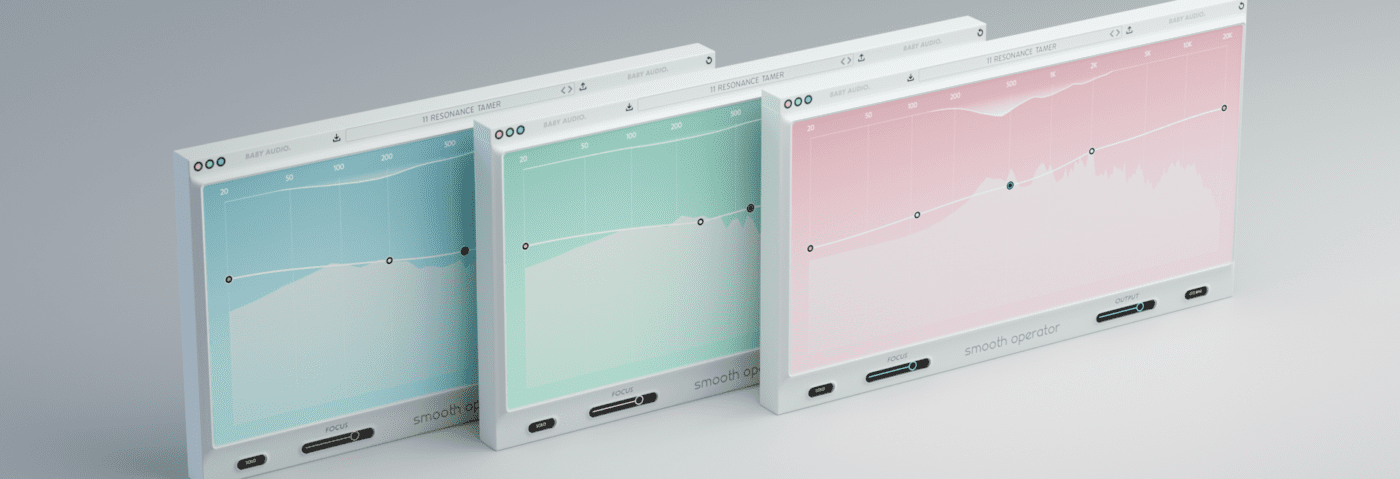In our latest “Meet the Designer” interview, we spoke with Caspar Bock the founder of Baby Audio about how the company came to pass, their charitable endeavours and the future for plugins.
What’s your background?
Like most people who got into audio plugins, my starting point was a love for producing music. I did this for many years – with varying degrees of success – and along the way developed a semi-unhealthy obsession with gear, both hardware and software.
In parallel with that, I had a career in advertising where I worked on the “interactive side” mostly – meaning I would develop digital products for brands. So the idea of marrying my passion for music production with my professional experience made sense, and that’s how Baby Audio got started.
In fact, it wasn’t so much a conscious decision to start a company in the beginning – but more that I was curious to see what it would take to make a really great plugin. It all just kind of unraveled from there. I tried talking myself out of it early on as I had this great career with plenty of perks – but in the end the passion won. It always does!
Can you tell us about the name Baby Audio?
I originally had a small sample pack label called “Analog Candy” and the idea was to release plugins under that same moniker as well.
But then I thought Baby Audio sounded better and worked well with the idea of making really simple plugins. One of the things I didn’t like with a lot of my software at the time was how complicated it was to operate – I’d often spend more time tweaking parameters than making music – so the idea of developing pure, fast and simple plugins was the foundation for the company. The name “Baby Audio” matched that well.
What’s the guiding mantra for Baby Audio?
We want to enable music-makers to express themselves creatively and develop their own, unique sound.
The thing I mentioned above about simplicity is a part of that: You’re not creative when you’re overwhelmed by options. Creativity is all about confidence, play, and having an obstacle-free workflow. We want our plugins to enable those things. I think this comes down to making software that sounds amazing no matter what you do with it, and where the operation is less about “engineering” and more about “making”.
A lot of producers nowadays work with loops and samples – so we’re hoping our plugins can help them take something generic and turn it into their own thing.
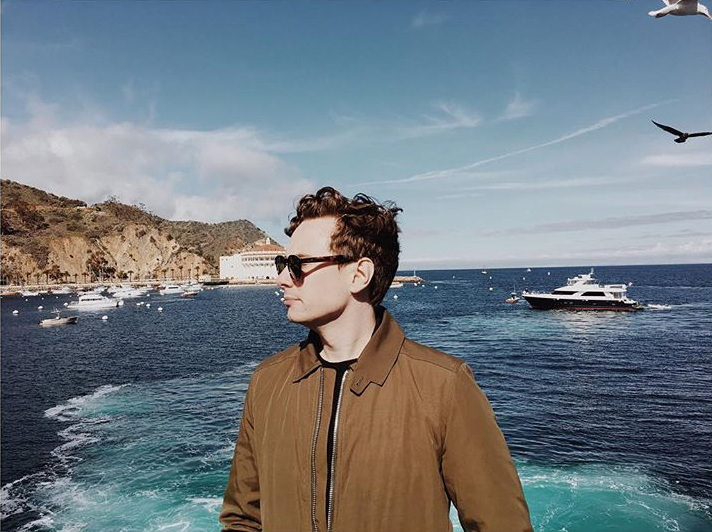
How does the company stand out in a crowded market place?
I think we have a pretty well-defined philosophy and attitude towards what a “good” production workflow is meant to be – and that manifests across our products.
Even if people own a million plugins already – which most do! – I’m still hopeful that there’ll be something in ours that will take their mix on a different path. Also, we’re not competing to be the only plugins people ever use but just hoping we’ll offer one distinct flavor to complement a toolbox of many.
Are you programming all yourself or working with a team of programmers?
We have a team of 5-6 programmers working on and off on our products with me and my business partner overseeing things on a daily basis.
Each one has a different skill set, which enables us to cover a variety of ideas/concepts. For instance, we’ve recently hired a developer who’s deep into AI-modeling to help us on projects in that space. Everyone on the team also has other projects they’re working on outside Baby Audio, so it’s a flexible model for everyone. It helps us punch above our weight and be more flexible than if we had a smaller team of full-time employees only.
What’s a challenge with running a plugin company?
There’s a lot of maintenance.
With music, once something is released and out there, you can move on to the next thing. But plugins are never finished as they depend on compatibility with evolving computer systems. Before you know it, Apple might have changed their OS, which requires you to rebuild all your plugins – or a user finds an obscure bug in one DAW that doesn’t happen in the others.
If you want to stay on top of these things and be compatible everywhere – which we strive for – there’s always a ton of stuff to do on existing products. And the more products you have, the more time that takes, which slows down the development of new releases.
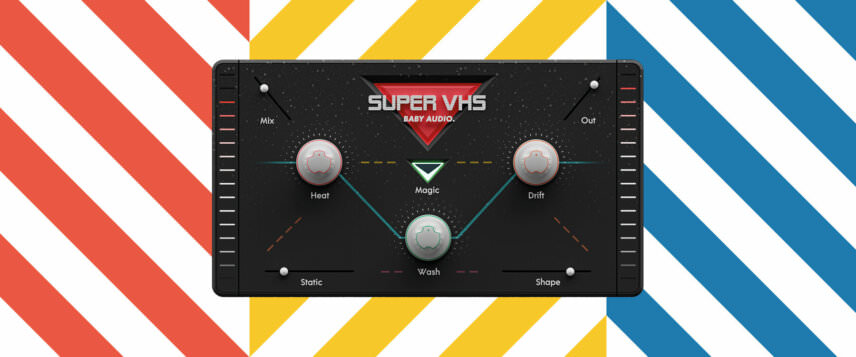
Baby Audio must have appeared on plenty of hit records by now. Do you know of many?
I don’t know how many but I know of enough that I’m pretty amazed by it.
Sometimes I think that it’s funny how I never got to reach a big audience with my own music – but now our plugins are playing a role on all these big Billboard records. It’s a cool feeling, but I also don’t get carried away by it.
At the end of the day, we just make tools. They don’t do anything on their own – and to do brilliant things with them you need to be someone who has brilliant skills. If you’re that person, you would make hit records no matter what tools you used!
We want to enable music-makers to express themselves creatively and develop their own, unique sound.
How closely aligned are your products with your own philosophy and interests?
I’d say very close.
Whenever we develop something new, I always think of my younger self when I came to LA to try and make it as a producer. I imagine the studio I worked in and what my sessions were like.
Then I imagine using our plugins in that context and tweak the functionality according to what would have made sense to me at the time. That’s always the framework for how I think about new plugins. It’s a good method for detaching myself from the development process and trying to look at things from a user’s perspective.
Can you give us a couple of examples where your products might be less commercially minded but perhaps more creatively satisfying for you?
I think the cool thing is our plugins can all be commercially minded – or the opposite – depending on how they’re used. But one of our least sold plugins is probably the one I reach for the most in my own productions – the Comeback Kid delay.
I love working with delays in general where I just feed one hit/stab/note per bar into them. That way, you can use the delay to generate a rhythmic/arpeggiated pattern – and with Comeback Kid I like to automate the parameters to have the wet signal evolve in interesting ways. It works nicely for that.
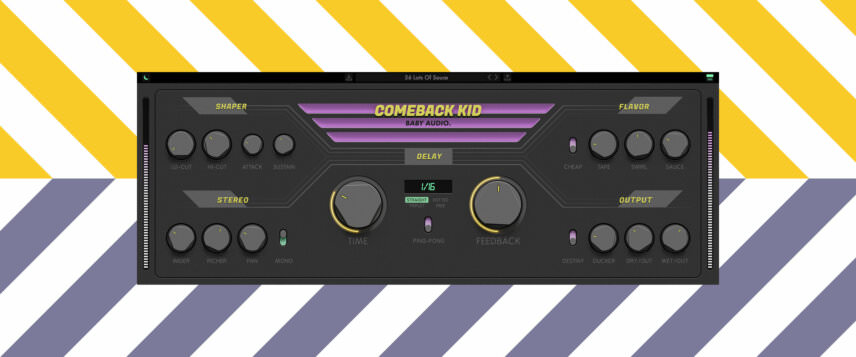
Do you think we’re in danger of reaching a point where there are very few original ideas left to explore?
Yes and no.
On one hand I agree that some emulations have been done so many times that it probably doesn’t make sense for anyone to do them again until technology allows you to do it 10x better.
But on the other hand, there are also many new technologies being invented all the time that can pave the way for new types of software. For example, AI and spectral processing are two areas that we’re getting more into. Also, with increased CPU power at the user’s disposal, we can now make more complex products that weren’t feasible 5 or 10 years ago.
But I do agree that parts of the market are now saturated. I think the burden is on the developers to come up with new ideas then. If they do that, there’s always an appetite for new gear.
Is there a time in your mind that Baby Audio’s catalogue will be complete?
Great question, and yes! I think about this a lot.
We’ve been releasing around three new plugins per year so far and at some point, there’s a risk that we’ll have too many. We have a long term plan for this, which revolves around bundling multiple effects into one experience so we can cover more ground with fewer products. Our goal is to have a maximum of 10-15 products in the end and turn our focus to evolving those rather than making new ones.
Do you have a particular favourite Baby Audio plugin?
Of our existing products, I really like Comeback Kid and Spaced Out. (I love delays!). Other than that, we have some cool things coming up as well that I’m looking forward to. One is a synth. And since synths were my original passion, that feels like a special project.
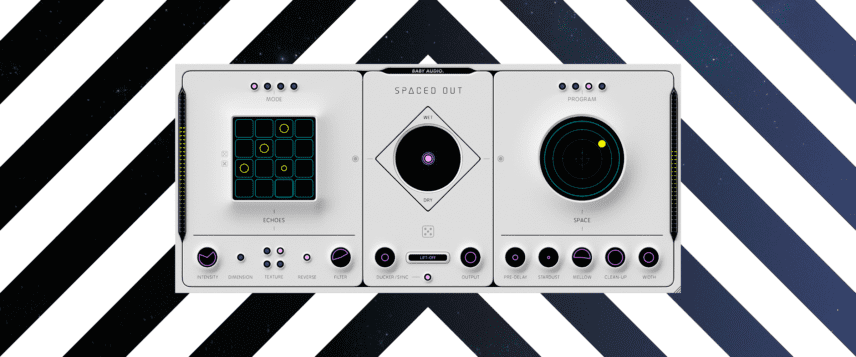
What’s the next ten years looking like for the plugin market?
Industry-wise, there’s a lot of consolidation happening right now with the big players joining forces and aiming to offer an entire software eco-system to producers on a subscription basis.
I think many users will adapt to these platforms – especially new ones coming into the game – but I don’t think that it will kill off the indie scene. In fact, it may have the opposite effect where users will be increasingly eager to buy one-off plugins from good indie developers to get something unique for their toolbox.
I believe that creatives will always need new impulses – also in 10 years. With all the new technologies being developed everywhere it will be an amazing time to make music.
Tell us about Grants For Good and your attention to social responsibility? How are you trying to make a difference?
We donate plugins to organizations/schools that offer free music education in their communities.
Free education is a wonderful thing so we want to support that in the best way we can. We also sponsor organizations that help empower female producers – for instance Omni Sound Project. As far as our Grants For Good program goes, I’m always interested in hearing from organizations that think they could benefit from working with us. So if you know of any, please hit me up!
To learn more about the Grants for Good program, visit the landing page on the Baby Audio website.
